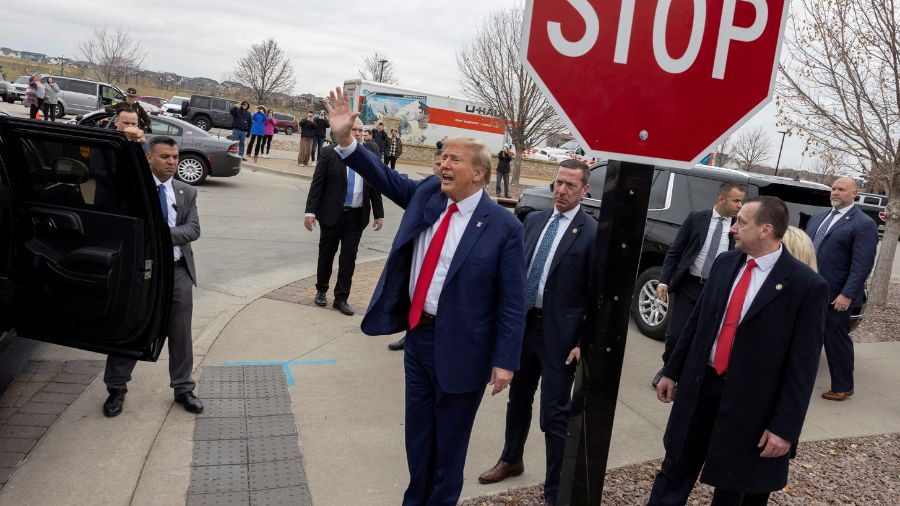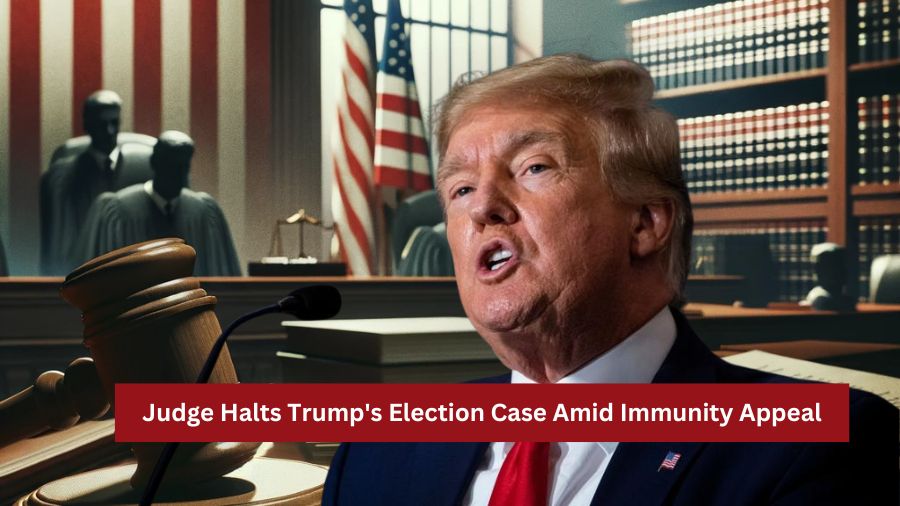Explore the latest developments in the legal case against former President Donald Trump regarding the 2020 election. Judge Tanya Chutkan pauses trials amid Trump’s immunity appeal, raising key questions about presidential powers and legal accountability.
On Wednesday, a federal Judge ordered a temporary pause in the trials related to former President Donald Trump’s 2020 election conspiracy case.
Exploring the Accusations and Defense Strategies
In August, the former President was indicted with four counts for attempting to change the 2020 election result in his favor. The charges against Trump include:
- Conspiracy to defraud the U.S. government.
- Witness tampering.
- Conspiracy against the voting rights of citizens.
- Obstruction of investigation.
- An attempt to obstruct an official proceeding.
He pleaded not guilty to all charges and has denied any wrongdoing.

In the latest order, U.S. District Judge Tanya Chutken, who is overseeing the case, has agreed to put a hold on the proceedings to decide the charges against Trump.
The order came after Trump’s legal team appealed to the U.S. Court of Appeals for the District of Columbia Circuit, claiming that the former President should not be criminally charged in the election subversion case since the alleged conduct took place when he was serving as the U.S. President and the Constitution provides immunity to the President for criminal proceedings.
In the 16-page filing, Trump’s lawyer requested the three-judge panel to move slowly in the case and consider the former President’s claim that he is immune from prosecution.
Judge’s Ruling on Trump’s Immunity Appeal
The lawyer, D. John Sauer, wrote in the filing, “The manifest public interest lies in the court’s careful and deliberate consideration of these momentous issues with the utmost care and diligence.”
In October, Trump requested to dismiss the charges in the case, claiming his presidential immunity. However, the Judge rejected his request and ruled to continue the trials.
Although she ordered a pause in the trials Wednesday, Chutken said she would take measures to “safeguard the integrity” of the proceedings. As such, she is likely to issue a gag order, prohibiting Trump from making public statements about the people involved in the case, or a protective order, protecting the “sensitive evidence.”
In a separate move on Monday, special counsel Jack Smith, who investigated Trump’s attempt to overturn the 2020 election, has filed an appeal to the Supreme Court requesting it to decide on Trump’s immunity issue in the case. The Court has given Trump a deadline of December 20, 2023, to respond to Smith’s request. Smith requested the federal Judge to have the case trials by January 2, 2024, two weeks before the 2024 presidential primary.
Trump, leading for the GOP nomination as a dominant 2024 Presidential candidate, has constantly tried to push the case trials after the 2024 election for his reasons.
Suppose the former President successfully delays the trials until after the election and wins for the second term. In that case, he may use his power to cancel the charges and pardon himself in his election conspiracy case.







Add Comment